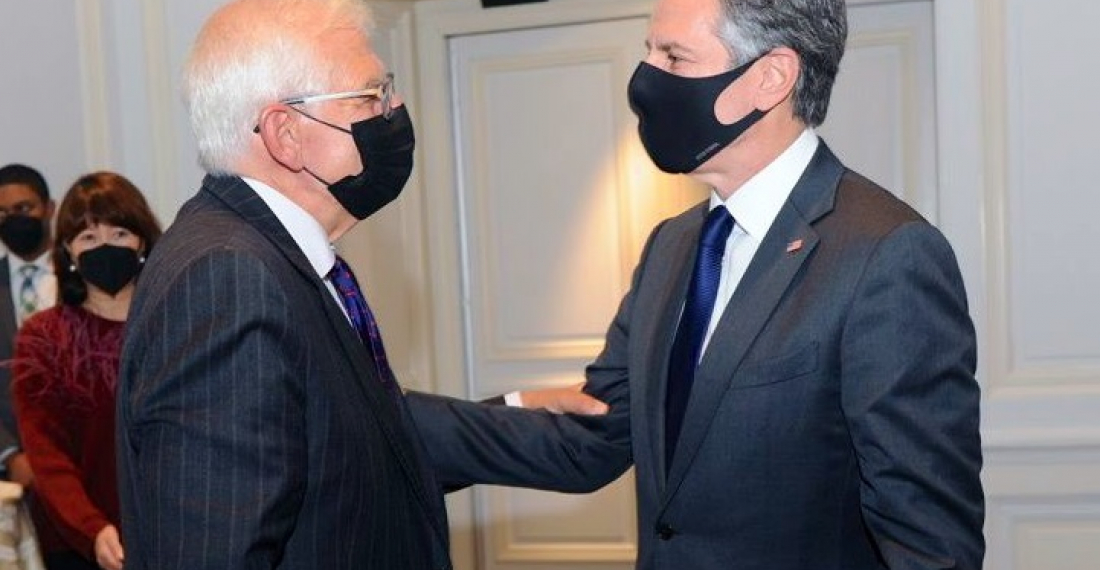"The EU and the US are unique partners in addressing global challenges. Their closer cooperation, based on shared values, will contribute to international peace and security." This was stated in a statement released by the European External Action Service following a meeting in New York between the EU High Representative Josep Borrell and US Secretary of State Antony Blinken. Both are in the city attending the UN General Assembly.
The senior diplomats "welcomed the joint statement by President Biden and French President Macron, which followed the recent announcement of a security partnership by the US, United Kingdom and Australia and the cancellation of an Australian submarine contract with France. This statement contributes to clarify the situation. Building on it and on today’s meeting between the HR/VP and the Secretary of State, the EU and the US will work on practical steps to deepen dialogue and co-operation.
Both reaffirmed the strong alliance between the United States and the EU. They committed to deepen their engagement in addressing global challenges, including stability in the Indo-Pacific region. They underlined the relevance of EU defence efforts, which will also contribute to a stronger NATO. In this regard, the High Representative recalled the need to launch a comprehensive structured dialogue on security and defence".
High Representative/Vice-President Borrell and Secretary of State Blinken touched on other key issues of common concern, including Afghanistan and Iran, as well as the Joint Comprehensive Plan of Action (JCPOA) and the Belgrade-Pristina Dialogue. The High Representative/Vice-President referred to his co-operation with neighbours of Afghanistan and to the benchmarks that will determine the level of EU engagement with the Taliban. He underlined the EU’s continued commitment to the people of Afghanistan and expressed concern over the humanitarian and economic situation in the country.
As regards the JCPOA, the High Representative stressed the need for discussions to resume in Vienna. The JCPOA remains a key instrument for global non-proliferation, peace in the region and for international security, but time to return to its implementation is not indefinite, if we want to ensure it delivers fully.
The High Representative and the Secretary of State agreed to continue their discussions in the coming weeks.







